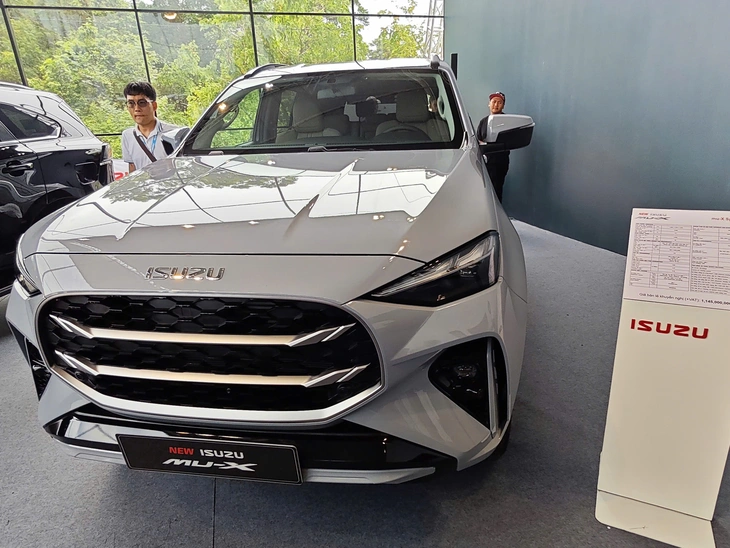
Isuzu Vietnam not only sells trucks but also expands into the passenger car segment - Photo: CONG TRUNG
As the automotive industry enters a period of energy transition and green logistics, Isuzu aims for long-term investment with the goal of Net Zero and deeper cooperation with domestic suppliers to increase the localization rate.
Purchasing components from Vietnamese enterprises such as Thaco of billionaire Tran Ba Duong not only helps reduce import costs, but also contributes to forming a domestic supporting industrial ecosystem.
Talking to Tuoi Tre Online , Mr. Thai Van Toan - Senior Executive Director in charge of business and after-sales of Isuzu Vietnam - shared about the investment strategy, green orientation and the next steps of Isuzu in its development journey in Vietnam.
Long-term investment, increasing domestic component purchasing links
* How is Isuzu Vietnam organizing production, assembly and import? What is the current localization rate, sir?
- The total investment capital of Isuzu Vietnam from the very beginning has reached more than 800 billion VND, about 50 million USD. Although the factory scale is not too large, the entire inspection and quality management process strictly follows the standards of Isuzu Japan.
Currently, Isuzu trucks are manufactured entirely in Vietnam, while pickup trucks and SUVs are imported.
The localization rate ranges from 17 to 50%, depending on the vehicle type. In particular, specialized vehicles have a higher localization rate thanks to the body, platform and components being produced domestically.
We cooperate with Thaco and many Vietnamese partners to supply components such as leaf springs, seats, glass... All are quality inspected by the Japanese Isuzu Corporation before being put into the production line.
For regular trucks, the truck body accounts for more than 10% of the value, plus the chassis, the localization rate is about 17%. For specialized vehicles such as cranes, garbage trucks, public service vehicles... this number can reach 38-40%, and if the chassis is included, it is nearly 50%.
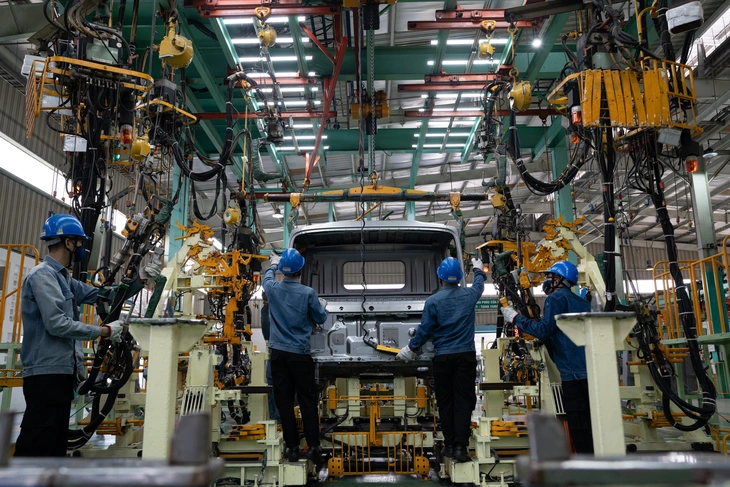
Isuzu ranks Vietnam among key global markets, accelerating green transformation with $50 million investment capital to build a factory - Photo: ISZ
* With the current investment scale and production capacity, how is Isuzu Vietnam positioning itself on the map of Vietnam's automobile industry?
- I have been with Isuzu Vietnam since the very beginning, even before receiving the investment license in 1995. At that time, the transportation market was still very small, customers mainly used old cars, and infrastructure was limited. In the first years, we only sold a few dozen cars, then gradually increased to hundreds, thousands of cars.
Talking about "positioning" is actually not simple, because Isuzu mainly operates in the commercial vehicle segment, while the automobile industry in general also includes passenger cars.
If we compare the sales scale with passenger car companies like Toyota or Honda, there will definitely be a big difference.
However, we can be completely proud of our 30-year journey in Vietnam, up to now, Isuzu has sold more than 130,000 commercial vehicles.
Currently, Isuzu Vietnam has about 500 employees, including a nationwide dealer system of about 1,800 people.
* The Vietnamese commercial vehicle market is becoming increasingly competitive, especially with the influx of cheap imported trucks from China. What challenges does this pose for domestic vehicle manufacturing and assembly companies?
- Entering a new phase, the Vietnamese commercial vehicle market is witnessing unprecedented fierce competition. Chinese trucks are flooding into Vietnam, with the advantage of low prices and diverse designs, while domestic consumers are increasingly demanding more in terms of emotions and conveniences, even with commercial vehicles.
Trucks today not only carry goods but also have to be comfortable, modern and driver-friendly.
This puts a lot of pressure on manufacturers, including Isuzu. However, we see this as a driving force for innovation, not a threat. If we look back more than 10 years ago, the Vietnamese motorbike market also experienced a similar "wave".
Chinese cars flooded the market, copying Honda and Yamaha models and quickly taking market share thanks to their low prices. But after only 2-3 years, those brands almost disappeared because of poor quality, outdated technology and lack of long-term strategy.
That is a valuable lesson for the Vietnamese automobile industry in general and Isuzu in particular. Low prices can create short-term advantages, but only quality can help build long-term trust with customers.
Keeping the "truck DNA", expanding to passenger cars
* While Isuzu's truck lines have affirmed their position for many years, the company's passenger car segment has not really made a breakthrough. In your opinion, what is the reason? Is it because of the market, consumer habits or because of Isuzu's strong "truck identity"?
- It is true that Isuzu is very famous for trucks. When hearing the name Isuzu, most customers immediately think of commercial vehicles. Meanwhile, the Vietnamese market is different from Thailand, where people choose cars for their practicality and efficiency. Vietnamese people still consider cars as a big asset, focus on brand and personal image, so passenger cars are often more associated with the "class" factor.
We are gradually renewing our brand image, with modern, convenient SUV and pickup designs that are both business and family-friendly. This is a long-term strategy, and it will take time for consumers to feel the change.
In the past 5 years, the D-Max and mu-X models have made significant progress in design, interior and driving experience. However, Isuzu still retains the "truck DNA" of durability, economy, and versatility, factors that have made the brand famous for decades.
Japanese car company talks about electric car plans in Vietnam
* In the trend of shifting to clean energy, what plans does Isuzu Vietnam have in cooperating with Isuzu Motors Limited to develop electric vehicles?
- When it comes to electric vehicles, it is necessary to distinguish between commercial vehicles and passenger cars. With commercial vehicles, the biggest challenge is the already heavy weight of the battery, plus the battery reduces the cargo load, affecting transport efficiency.
However, switching to clean energy is an inevitable trend, towards the goal of Net Zero 2050. In 2023, the Japanese Isuzu Corporation launched light electric trucks in Japan and North America, currently testing and planning to expand to other countries, including Vietnam.
Isuzu is carefully studying each country's infrastructure, including charging stations, maintenance, battery recycling, and business affordability, before launching production or distribution.
When conditions are suitable, Isuzu Vietnam can assemble electric vehicles right at the existing factory without having to invest from the beginning.
Not only stopping at electric vehicles, Isuzu globally also cooperates with Honda to develop heavy-duty trucks running on hydrogen, with a total payload of more than 25 tons, operating entirely on clean energy.
This is a strategic step to "green logistics", meeting the requirements of international shipping lines and seaports on environmental standards when exporting goods to Europe.
In addition, Isuzu is also researching internal combustion engines using clean fuels such as hydrogen - an intermediate direction when the electric vehicle infrastructure is not yet complete. Japan aims to stop using fossil fuels by 2030 and achieve Net Zero by 2050, so these green technologies will certainly spread to Vietnam soon.
* So is Vietnam in the priority market group for new technology of Isuzu globally?
- Yes. Vietnam is always in the top 3 markets where Isuzu deploys new technology the earliest, just after Japan.
For example, in 2008, when Vietnam switched to Euro 2 emission standards, Isuzu pioneered the application of Common Rail technology, nearly 10 years ahead of its competitors. By 2018, when Euro 4 standards became mandatory, we were fully prepared, continuing to play the role of a pioneer in clean technology and environmental protection.
Need policies to promote supporting industries, lack of land fund
* In your opinion, what are the most necessary incentive policies or legal frameworks today to encourage businesses to boldly invest in the electric vehicle sector, especially electric commercial vehicles?
- In my opinion, the most important thing is the support policy for domestic component manufacturers. To truly localize, the output must be large enough so that the cost of components can compete with imported goods.
For the electric vehicle industry, especially electric commercial vehicles, to thrive, special incentives are needed for businesses investing in the production of high-value spare parts and components in the automotive industrial chain. This is a practical direction to build a stronger and more sustainable supporting industry for Vietnam.
Currently, Isuzu Vietnam has nearly 30 dealers nationwide, and opens 4-5 new sales and service points each year. However, the expansion process is facing difficulties due to limited land funds and complicated legal procedures.
Trucks require large areas, often located outside urban areas, while many suitable plots of land are agricultural land, requiring conversion of use purposes and obtaining construction permits, a process that currently takes a long time.
* Thank you for the chat!
Source: https://tuoitre.vn/rot-von-50-trieu-san-xuat-tai-viet-nam-isuzu-tang-mua-linh-kien-trong-nuoc-20251023113140008.htm






![[Photo] Prime Minister Pham Minh Chinh chairs meeting on railway projects](https://vphoto.vietnam.vn/thumb/1200x675/vietnam/resource/IMAGE/2025/10/23/1761206277171_dsc-9703-jpg.webp)
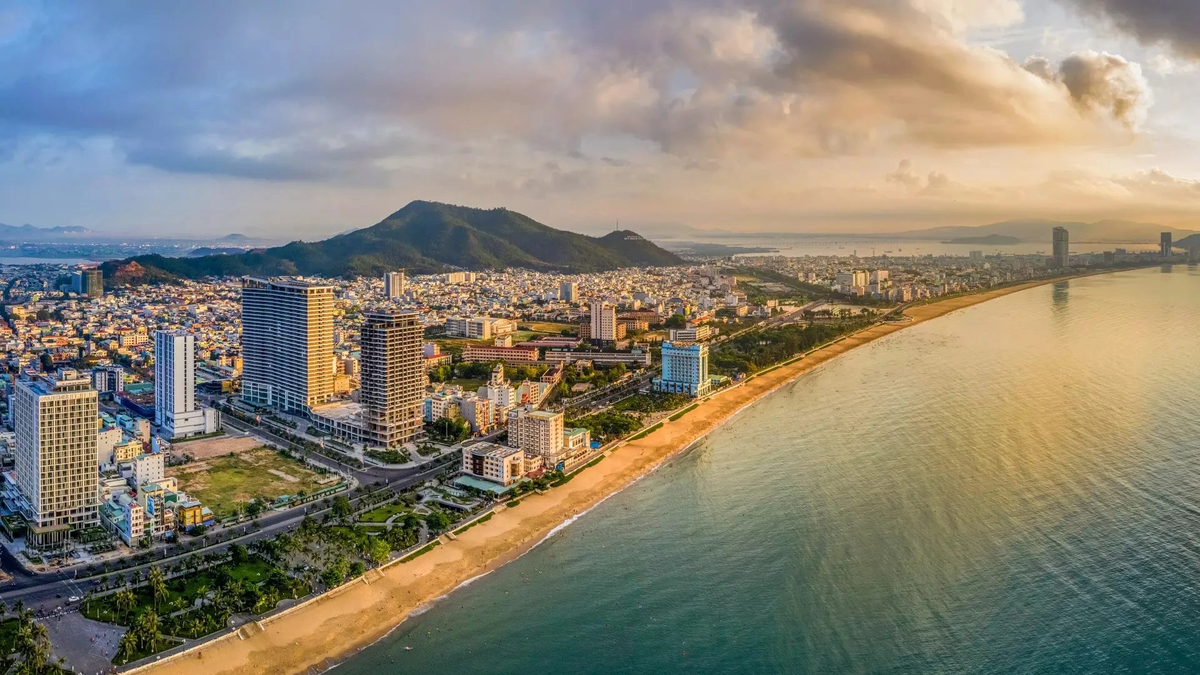
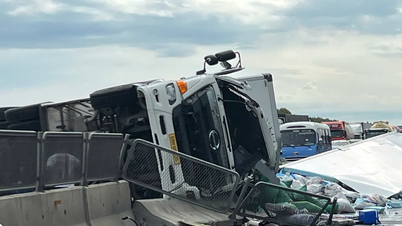

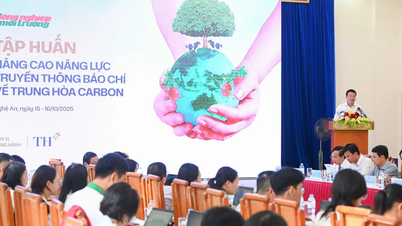
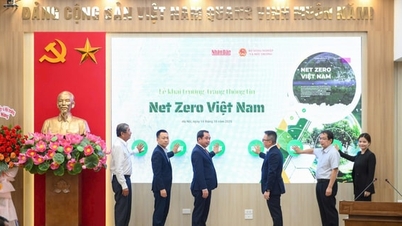





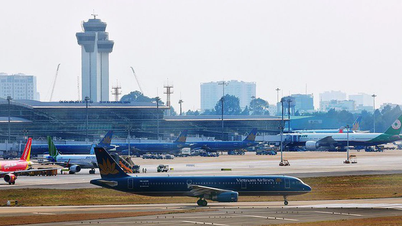


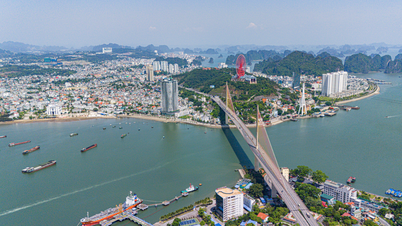
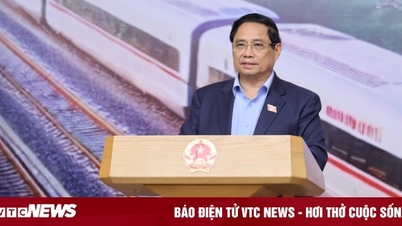

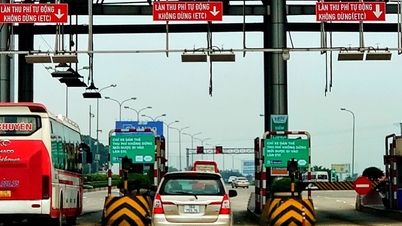
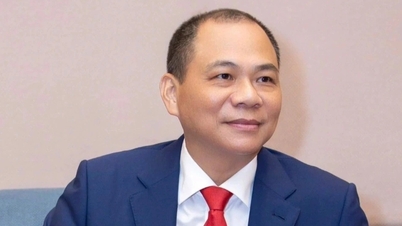
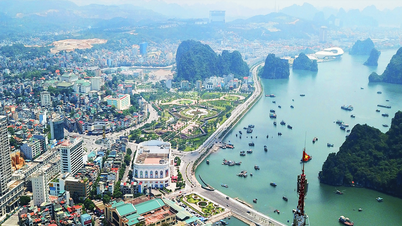






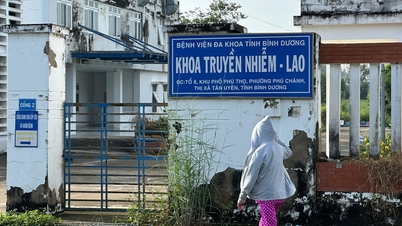
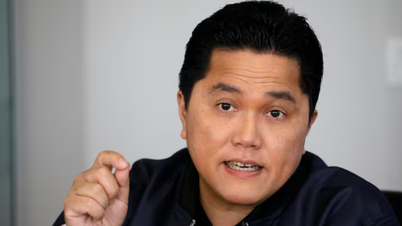
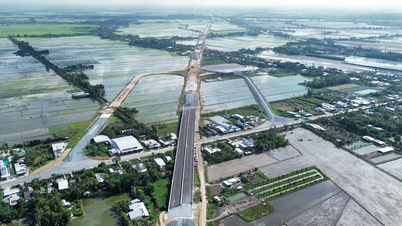
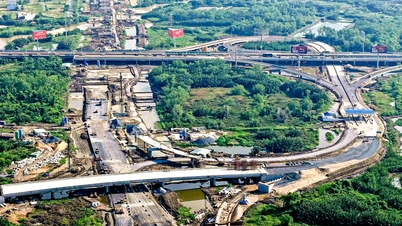




































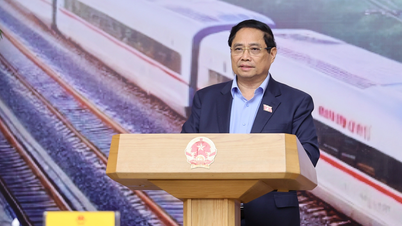











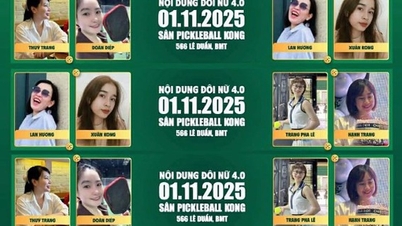

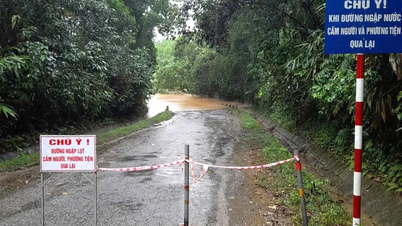

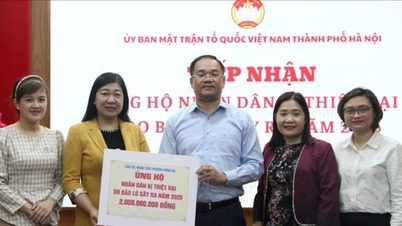
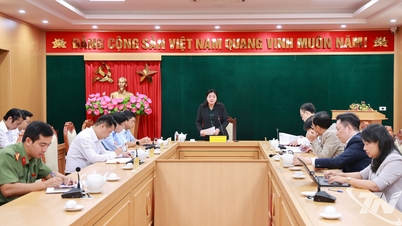




















Comment (0)